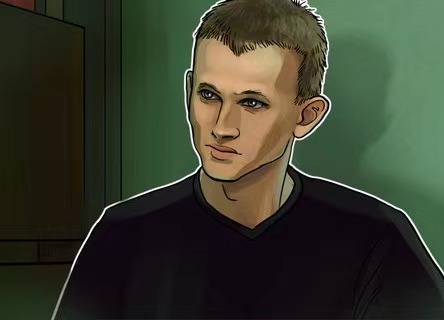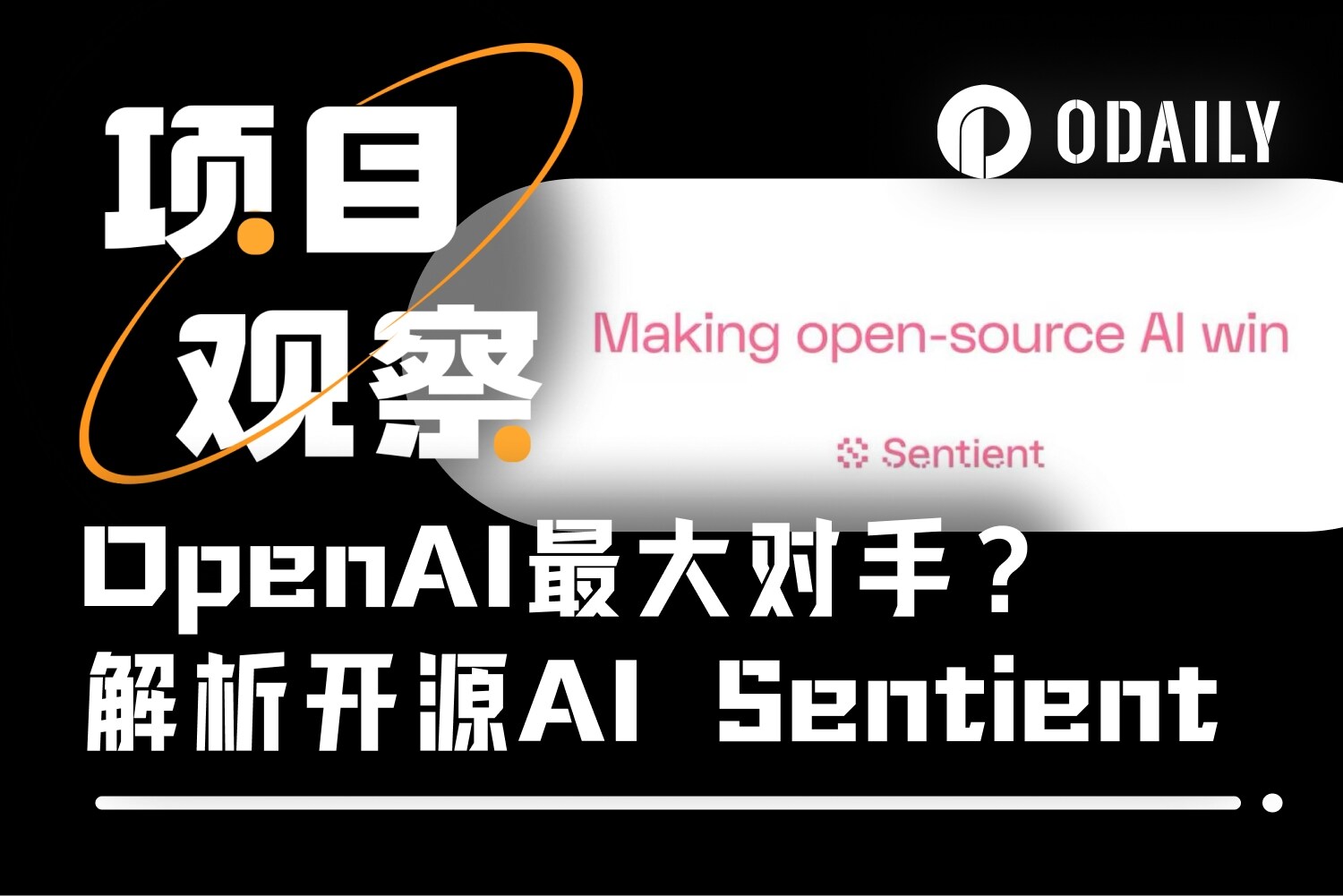Interview with V God: After the merger, what is the next step for Ethereum?
This article comes from WIREDThis article comes from

, Original author: Lauren Goode & Gideon Lichfield, compiled by Odaily translator Katie Koo.
WIRED Global Editorial Director Gideon Lichfield (GL) and Senior Writer Lauren Goode (LG) caught up with Vitalik on Zoom to discuss the recent burst of the cryptocurrency bubble, whether decentralized technology can support decision-making at a social scale, and what lies ahead after the merger. A great innovation. The following conversations were compiled and condensed by Odaily.
secondary title
V God: I am very happy and indeed relieved. This is a transition the entire Ethereum community has been working towards for the past 8 years. Along the way, there were a lot of people (both from the Bitcoin community and crypto skeptics) who were skeptical that the merger would happen, aka the switch to PoS. We're happy to prove them wrong in the end.
secondary title
GL: Simply put, the conceived advantage of PoS is that it consumes less energy and has a lower barrier to entry, so there is less risk of centralization and it is more secure against attacks. So what is the biggest opportunity PoS presents?V God:One of the biggest opportunities that PoS brings is economic resources that the ecosystem no longer needs to spend on PoW.
All projects will have more resources than before.Another reason is that the move to PoS brings greater legitimacy to Ethereum.
The biggest reason for many institutional participants, whether they are governments or companies, they doubt or do not want to use Ethereum is the problem of PoW and the system environment. After the merger, Ethereum is no longer a PoW network, which makes those who have such concerns more willing to use it now. There are likely to be many people who have been quietly on the sidelines who will now join and start using Ethereum.Possibly the biggest problem people have with blockchains, aside from PoS or the ability for users to actually use them, is scalability. Sending transactions is expensive because the blockchain is not very scalable. The reason is that in this architecture, every node in the network has to personally verify every transaction. We already have the technical idea to solve this problem and turn Ethereum into a system for processing transactions that is still decentralized but much more efficient.
secondary title
LG: You answered my next question, what is the next great innovation that we can look for after the merger? Can you give a specific example? For example, developers have done something that they could not do before, or could not achieve efficiently before.V God:Scalability is a big problem. Ethereum has what we call an L2 scaling model, and our plan is to gradually upgrade it to enable the chain to handle larger amounts of data. Then there are these separate protocols that take this data as an ingredient and build on top of that to create a "mini-Ethereum" similar to what's inside Ethereum.
Together these will be able to handle a high volume of transactions. Today, Ethereum can process about 20 transactions per second, which may add up to between 5,000 and 100,000 transactions.The transition to scalability could be the next big thing for the merged Ethereum ecosystem. It's just as exciting to me. It can also be the next game changing point.
secondary title
GL: After the merger, what impact do you think this year's Crypto Winter will have on Ethereum?
V God: This is a good question. I have said publicly many times that I am somewhat anticipating a bear market. One of the biggest things working against cryptocurrencies in the bubbles of 2020 and 2021 is that cryptocurrencies “inflate” before they are truly mature enough to handle the level of attention they receive. Looking at the graph of the energy consumed by Ethereum, I think more than half, maybe more than two-thirds has happened in the past two years. It would have been better if the merger had happened two years ago, and it could have been worse if it had been delayed another five years and happened after another very big crypto bubble.
I've always wanted to get scalability right before the next mass adoption and focus on the ecosystem. One of the benefits of temporarily dropping prices is that we will have the opportunity to do just that. PoS does not reduce transaction fees, but it is important that we address scalability issues before we can go all in on reducing transaction fees.
secondary title
LG: The last article in your new book "Proof of Stake" was written in January 2022 and is about NFTs. The market has changed dramatically since then. How confident are you in some of the ideas you're exploring (such as "Proof of Attendance Protocol")? It is worth mentioning that event ticketing seems to be one of the more effective uses of NFT, but the NFT art market is currently "falling and falling".
V God: My opinion on NFT is the same as it was a year ago. I think sustainable NFTs will be useful NFTs. In the initial stages, there were tradable artwork and cat pictures, and a lot of that stuff has been destroyed. In order for an NFT to have lasting value, holding it requires some real-world benefits, not just HODL.
Another interesting use is the entire NFT gaming arena. Games like Axie Infinity were hugely successful last year, but Axie Infinity was hacked and hasn't really "recovered". The reason, in my opinion, is that the people who designed these first-generation NFT games had the attitude that financialization alone was enough to make the games fun (only Earn no Play). But this is obviously not enough, even if there is no profit factor, for a successful NFT or P2E game, fun should be in the first place. Whoever figures out how to make an interesting blockchain game first is the winner.
secondary title
GL: You write a lot about governance, and I'm intrigued by blockchain's potential uses in government and society. What is the potential of using a decentralized system like Ethereum to make decisions about social issues (and not necessarily Crypto related issues)?V God:
Blockchains like voting are an interesting example. For example, people often talk about the censorship resistance that blockchain brings. The phrase "resistance to censorship" gives many people the impression that "I want to do bad things, but I don't want government approval." But people forget that voting does require censorship resistance. If the government can censor your ability to vote, that means the entire democracy stops functioning completely. It's important for a voting system to have such a strong feature of "censorship resistance" that if you want to vote, you should be able and pretty sure that your vote went where it was counted. I think that blockchain, combined with some other types of encryption, can provide functions such as privacy very well.
secondary title
LG: In an essay in your new book, you write that "In traditional governance, the incompetent has ways of spending money to acquire power and leadership roles". Can blockchain prevent this from happening?
The issue of corruption in elections, and the ability of people to spend money to gain power, is one of the use cases where privacy becomes a really important factor. Because if everything is transparent, then everything you do will be influenced by other people's motivation.
secondary title
GL: How should cryptocurrencies be regulated?
V God: I think it depends on which aspect of cryptocurrency is regulated. First there is the base layer of encryption, and then the application layer on top. For the base layer, we work hard to prevent it from being regulated, especially by any one country. But once you start getting into the application layer, there are different domains of applications. The specific things people do with blockchain are more likely to be regulated. It is much harder to publicly show that they are completely free from any form of regulation.
Tornado Cash was sanctioned about a month ago and this is just the latest instance of the current regulatory issue of how to deal with improving blockchain privacy, which is a challenging issue, on the one hand I think financial privacy is necessary and many people All agree on this. Cash is something that people have had for thousands of years. Many people don't want this dystopian scenario where a cashless society brings a greater degree of oversight to people's lives. But at the same time, the real concern is that billion-dollar hackers will be able to completely anonymize their funds, and whether this will create a flow of money for bad governments.
secondary title
GL: One last question. What happens if Ethereum or Crypto fail to deliver on its promise to change the world?
V God: If we solve the scalability and privacy issues, there is still nothing interesting happening. There is bound to be criticism: "Look, there's nothing really interesting about crypto being used at scale other than moving money."



